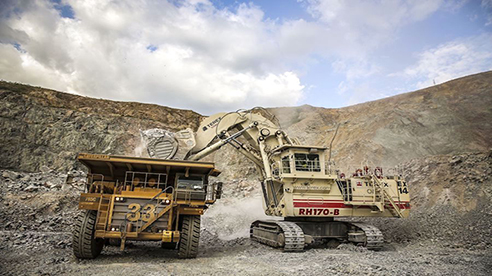
Acacia Mining fined over alleged environmental breach in Tanzania


The company noted it has not yet received any supporting reports, findings or testing data in relation to alleged discharges of a hazardous substance at the mine site, adding that it is currently assessing the technical basis of such claims.
Tanzania's No.1 gold producer also said the alleged environmental violations could relate to a long-standing seepage at the base of the tailings storage facility at North Mara, an issue apparently "well-known" by both the National Environment Management Council (NEMC) and the Tanzanian government.
"This seepage remains managed by pumps which return the water to the tailings storage facility and it is, therefore, contained on the mine site, does not flow into the surrounding environment or present a risk of contamination to any public water source," the company said in a media statement.
Acacia did acknowledge local media reports pointing at the Tanzanian government ordering a new tailings storage facility at North Mara, but said it was only a verbal directive.
The gold producer added that, before the order, it had already detected the need for additional tailings management and storage capacity to meet North Mara’s life of mine plans. However, it believes a new facility would be more economic than expanding the current infrastructure.
The news come only two days after the government appointed a new mining minister, Dotto Biteko, the third person to take on the role since President John Magufuli was elected in 2015.
Acacia, majority owned by Barrick Gold (TSX:ABX)(NYSE:GOLD), has been waiting for the Canadian gold giant to negotiate a settlement with Magufuli, after he forced it to stop exports of concentrate in early 2017.
That year, the country’s government banned exports of unprocessed metal and slapped the miner with a $190 billion tax bill— equal to almost two centuries worth of revenue.
In October, Acacia was hit with fresh charges of money laundering and corruption and some of its employees were detained.


Trump weighs using $2 billion in CHIPS Act funding for critical minerals

Codelco cuts 2025 copper forecast after El Teniente mine collapse

Electra converts debt, launches $30M raise to jumpstart stalled cobalt refinery

Barrick’s Reko Diq in line for $410M ADB backing

Abcourt readies Sleeping Giant mill to pour first gold since 2014

Nevada army depot to serve as base for first US strategic minerals stockpile

SQM boosts lithium supply plans as prices flick higher

Viridis unveils 200Mt initial reserve for Brazil rare earth project

Tailings could meet much of US critical mineral demand – study

Kyrgyzstan kicks off underground gold mining at Kumtor

Kyrgyzstan kicks off underground gold mining at Kumtor

KoBold Metals granted lithium exploration rights in Congo

Freeport Indonesia to wrap up Gresik plant repairs by early September

Energy Fuels soars on Vulcan Elements partnership

Northern Dynasty sticks to proposal in battle to lift Pebble mine veto

Giustra-backed mining firm teams up with informal miners in Colombia

Critical Metals signs agreement to supply rare earth to US government-funded facility

China extends rare earth controls to imported material

Galan Lithium proceeds with $13M financing for Argentina project

Kyrgyzstan kicks off underground gold mining at Kumtor

Freeport Indonesia to wrap up Gresik plant repairs by early September

Energy Fuels soars on Vulcan Elements partnership

Northern Dynasty sticks to proposal in battle to lift Pebble mine veto

Giustra-backed mining firm teams up with informal miners in Colombia

Critical Metals signs agreement to supply rare earth to US government-funded facility

China extends rare earth controls to imported material

Galan Lithium proceeds with $13M financing for Argentina project

Silver price touches $39 as market weighs rate cut outlook

















